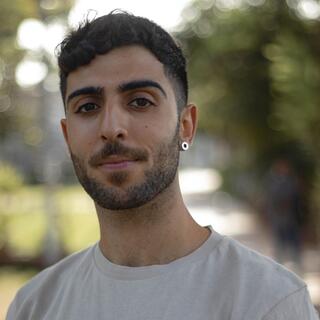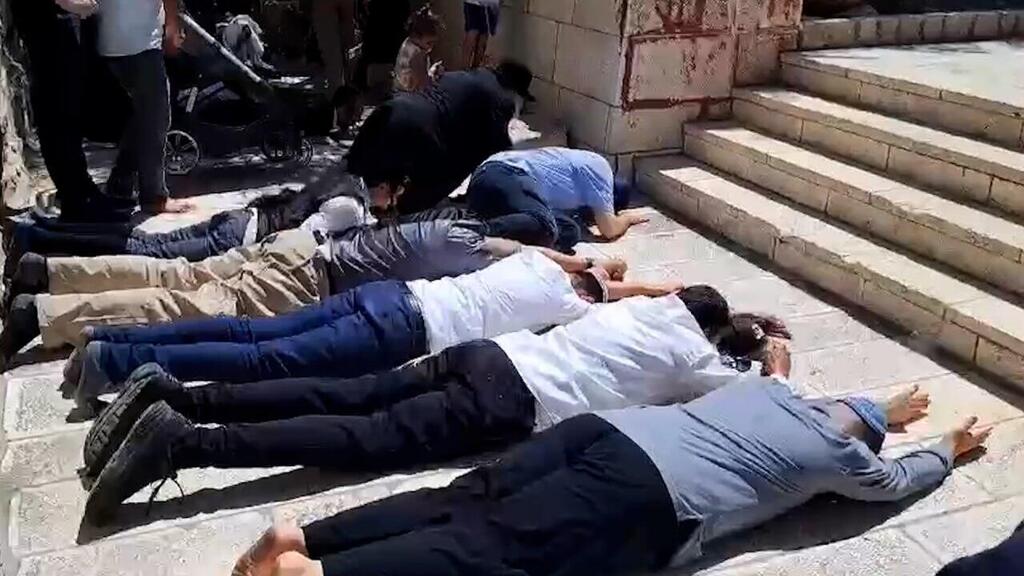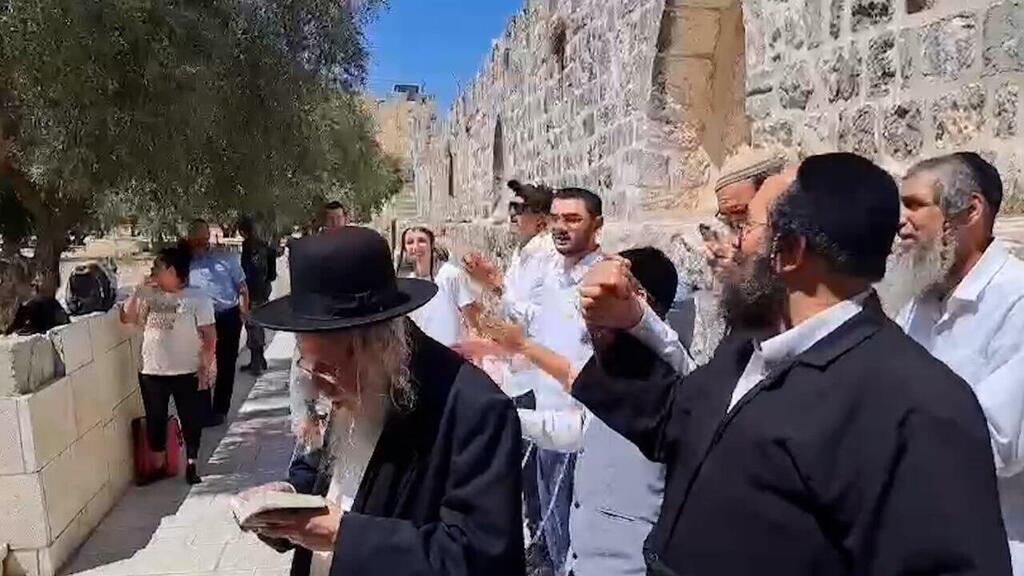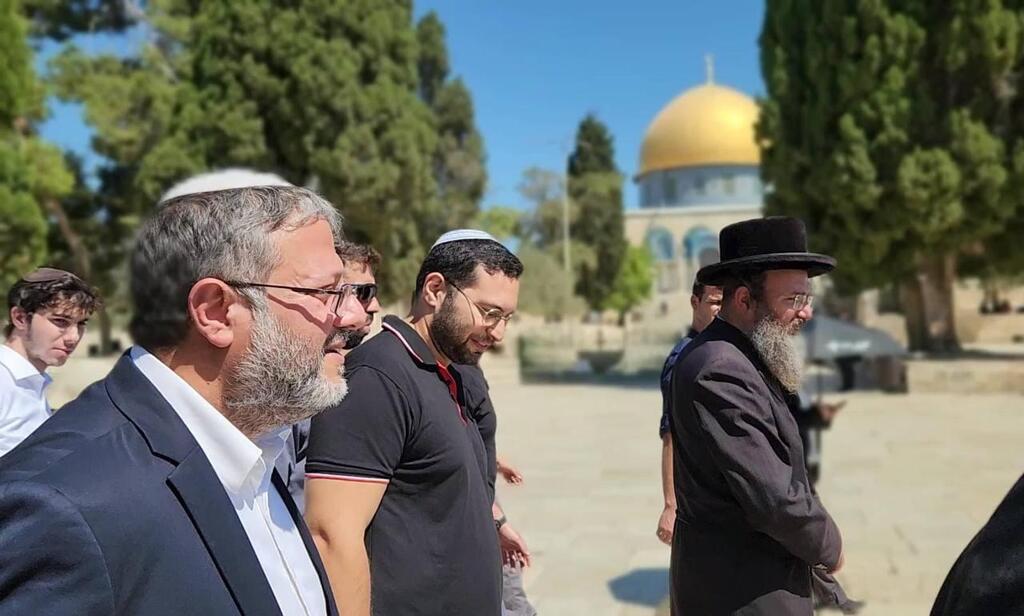Getting your Trinity Audio player ready...
Following Minister Itamar Ben-Gvir's call to allow Jews to pray freely, police appear to have normalized defying the status quo at Temple Mount, under which Jewish worship is prohibited at the site. A police officer ignored a Jewish man who bowed while praying at the holy Jewish site on Wednesday. Jewish activists say that the police allowed them to pray as they wished.
Although the police turned a blind eye in the eastern side of Temple Mount, a Jewish activist was arrested after defying the status quo in the western side, near the Al-Aqsa Mosque. The eastern side is considered to be less provocative and holier to the Jewish people, which would explain the police's attitude to the status quo there. However, the western side is frequented by more Muslims which would prompt the police to arrest any Jew who tries to stir controversy.
This recent trend can be seen following National Security Minister Itamar Ben-Gvir's visit to the Temple Mount with many worshipers and another minister from his Otzma Yehudit party more than a week ago on Tisha B'Av.
Ben-Gvir, who is in charge of the police, has called several times in the past to allow all Jews to pray at Temple Mount freely without restrictions. During his visit on Tisha B'Av he announced from the site: "Our policy is to allow prayer." After that visit, Prime Minister Benjamin Netanyahu disavowed Ben-Gvir's statement and ensured the status quo is being adhered to on the Temple Mount.
Netanyahu said in a statement that: "It is the Government and the Prime Minister who determine policy on the Temple Mount. There is no private policy of any minister – not the National Security Minister or any other minister – on the Temple Mount. Thus it has been under all governments of Israel. This morning's incident on the Temple Mount deviated from the status quo. Israel's policy on the Temple Mount has not changed; this is how it has been and this is how it will be."
The police stated in response: "The Israel Police works to secure and enable visits by tourists and Israelis to the place every day, during the accepted visiting hours and days. Deviations from the visiting rules and any attempt to violate the public order in the place are dealt with accordingly."





